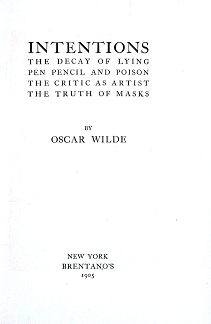When I was at the ARDC, I used to answer phone calls to the Ethics Inquiry hotline. All attorneys there did so for one day a week. One never knew what one was going to get – the calls came in randomly, and they were supposed to be a) anonymous and b) posed as hypotheticals. The latter usually happened, and of course we took no records of the names of the people we spoke to, if they happened to come up. The latter was harder to control. I found myself having exchanges like this:
Caller: OK, so my problem is that I got this case, and it’s nuts. It’s up in the Circuit Court of –
Me: Hold up – try to phrase it in the form of a hypothetical, okay?
Caller: Yeah, OK. Hypothetically, I got this case, and it’s nuts. It’s up in the Circuit Court of –
I don’t mean to blame or make fun. I understand that lawyers in the swim of things, in the middle of fast-developing ethical issues, don’t have time to finesse rhetorical points before asking for help. It was striking to me, though, that many times the lawyers who were most urgently seeking help were dealing with client candor issues – a sudden discovery that a client had not told the truth, or intended not to tell the truth in the near future. The Legal Ethics Forum recently highlighted a 5th Circuit appellate case in which just such a problem was front and center, and in which the court vacated a sanction against a lawyer who grappled with a client candor problem.
In Waste Management v. Kattler, et al., the defendant became embroiled in discovery disputes concerning various electronic devices, including a USB thumb drive. He first claimed that he never had such a drive; then he revealed to his lawyer that he suddenly remembered having had one. This revelation came after the lawyer represented to the trial court that there was no drive. The lawyer consulted a professionalism expert, and shortly thereafter withdrew from the case. The defendant’s successor counsel then revealed the existence of the drive to the court.
The plaintiff moved for sanctions against the defendant and the lawyer based on those and other issues (relating to the production of privileged data on a tablet computer). The trial court entered sanctions against both the defendant and the lawyer, holding both in civil contempt. The 5th Circuit vacated the sanctions on appeal, finding that the sanctions were unfair not only because the lawyer lacked appropriate notice of the potential for contempt sanctions being entered against him personally, but also because he had not acted inappropriately or unethically with respect to the USB drive.
The court analyzed the problem more under contempt principles than according to rules of ethics: analogizing to a similar case, the court concluded that while the lawyer in Kattler had “played a less proactive role in alerting the court to the deceptive conduct,” it credited his immediate steps to withdraw, and the quick subsequent revelation of the client’s conduct. It therefore found that the lawyer stopped short of assisting a fraudulent act by the client, and so should not have been held in contempt. Kattler, at 9.
Prof. Stephen Gillers, in his comment to the Legal Ethics Forum’s post about the case, aptly points out that the lawyer’s conduct occurred in Texas, which does not have a rule of professional conduct that is analogous to, or based on, ABA Model Rule 3.3. The Texas rule on candor to a tribunal (Rule 3.03) is different from the ABA rule, and Illinois Rule 3.3, in at least one way that is significant to the Kattler case:
- Texas Rule 3.03(a): “A lawyer shall not knowingly[…] (1) make a false statement of material fact or law to a tribunal…”
- ABA and Illinois Rule 3.3(a): “A lawyer shall not knowingly […] (1) make a false statement of fact or law to a tribunal or fail to correct a false statement of material fact or law previously made to the tribunal by the lawyer…
Emphasis added. Thus the lawyer in Kattler could have argued (and indeed the tribunal later found) that he did not knowingly make a false statement of material fact to the tribunal, because his client lied to him. He could also argue that without a clear duty under the Texas rule to correct any previous falsehoods, it was ethically not impermissible for him to withdraw from the case – noisily or perhaps even less so – and leave it for successor counsel to correct the problem.
As I’ve written before, though, when considering federal cases it’s always a good idea to look at standards of professional conduct that may be in force alongside (or maybe irrespective of) rules promulgated by state supreme courts. Doing so in this case leads to the local rules for the Southern District of Texas, which hold that the Texas Rules of Professional Conduct serve as a minimum standard for lawyers practicing in the district, and that lawyers who violate those rules – or who transgress professional principles in some other way not covered by the Texas Rules – may face discipline from the federal court.
That does not appear to have happened to the lawyer in Kattler, and his contempt sanction was vacated. None of the foregoing is to suggest that the contempt sanction would have been upheld, nor discipline imposed, under the Illinois Rules. But it appears that his ethical duty may have been broader had he been subject to the Illinois Rule or an analogue, and he may have had to take his candor a few steps farther. Hypothetically speaking, that is.

